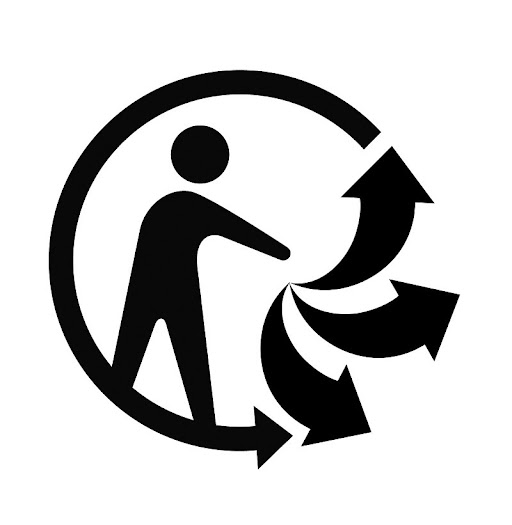The Triman logo and sorting instructions in France




Initiatives such as the Green Deal and the plastic tax show that the European Union attaches great importance to environmental protection. A key element in this effort is the EU Packaging Directive, which aims to minimize the negative impact of growing packaging waste and support an effective circular economy in the member states. However, the implementation of this directive varies from country to country. In Germany, for example, this is regulated by the Packaging Act, while Austria has its own packaging ordinance. In France, one of the main requirements is the so-called labeling obligation. This obliges companies to label products and packaging that are ultimately disposed of in consumers’ households with the Triman logo. This regulation also applies to non-French online retailers who sell their goods to private customers in France. There have been changes to this labeling requirement since January 2021. What do you need to know about the French labeling obligation and what changes came into force at the beginning of 2021 and also in 2022? We have compiled all the relevant information for you below:
What is the French Triman logo?
The Triman logo is a French labeling system that aims to inform consumers about the correct disposal of products and packaging. It serves as a visual indication that the product and packaging must be disposed of separately to enable effective recycling. Producers, importers and sellers are obliged to provide additional information on proper disposal alongside the Triman logo. This makes it easier for consumers to properly separate and dispose of products and packaging, which in turn helps to promote an efficient circular economy.
The design of the Triman logo is made up of three elements:
- A figure representing the responsible consumer.
- Three arrows in the middle, which stand for separation and collection in the sense of improved waste recycling.
- A fine arrow in the background symbolizing the recycling process.

The sorting information as a supplement to the Triman logo
Since 1 January 2022, it has been mandatory for distributors of household packaging on the French market to start implementing the so-called sorting information.
According to this catalogue of requirements, all sales packaging must bear the Triman logo and sorting information specially developed for the French market from 9 September 2022. In addition to the country abbreviation for France (ideally supplemented by the abbreviation “FR” for sales outside France), these separation instructions also contain information on the individual packaging components and the corresponding separation containers. The presentation of the separation instructions can be in text form (in French), as a pictogram or in a combination of both, whereby strict country-specific presentation rules must be observed.
- In France, all non-glass packaging is usually disposed of in the “yellow bin”, while glass packaging must be disposed of in the green glass container. This simplifies labelling and separation for consumers.
- In the case of packaging with several components, these must be listed individually and categorised accordingly.

Please also use our download offer at the end of this article.
These labelling regulations apply to all sales packaging distributed in France and affect both domestic and foreign distributors, regardless of the distribution channel. Exceptions to the new sorting information are:
Glass beverage containers
The Triman logo and the country-specific segregation information on the labelling of glass beverage containers is voluntary. If labels still have outdated markings, these must be updated by 9 March 2023 at the latest.
Small packaging units
For packaging smaller than 10 cm² without instructions for use or similar, the information about the Triman logo and the separation instructions must be available electronically (e.g. on the website, the product page in the online shop, etc.).
Packaging with a size of 10 to 20 cm² without instructions for use or similar must be labelled with the Triman logo, while the separation instructions must be available electronically (e.g. on the website, the product page in the online shop, etc.).
In the case of packaging up to 20 cm² that contains instructions for use or similar, both the Triman logo and the separation instructions must appear on this insert.
The labelling obligation is linked to a licensing obligation in France. The obligation to label and licence the sales packaging arises as soon as a single product is sold on the French market.
UPDATE: New deadlines in France for the Triman logo!
The Triman logo is already mandatory for numerous product groups. But new ones are constantly being added. These are the new deadlines for product groups:
- Furniture: mandatory for all products since 15 June 2023
- DIY and garden products: until 06 June 2024
- Toys: until 06 June 2024
- Decorative textile products (furniture EPR): until 25 August 2024
- Building materials (for consumers): until 28 March 2025
The prevention plan
The changes to the French law on extended producer responsibility (EPR) have resulted in new requirements: By 15 October 2023, it was necessary to submit a plan to the French dual system to reduce the environmental impact of your packaging. This plan will be reviewed for effectiveness every five years and updated if necessary. You have the option of joining a collective plan or creating an individual plan.
From 2024: Merging the DPR value chains for graphic paper and household packaging!
In the pursuit of a more efficient and environmentally friendly circular economy, France has decided to merge the value chains for graphic paper and household packaging from January 2024. This decision aims to create synergies and minimise the environmental impact of production and disposal.
What does this mean in concrete terms? An improved circular system that covers the entire life cycle of graphic paper and household packaging. From production to recycling – all under one sustainable roof. Thanks to this merger, we will be able to offer you support for the entire new sector, household packaging and graphic paper, under a single contract from January 2024.

LIZENZERO.EU makes packaging compliance in Europe very easy.
Do you ship your products to different countries in the EU? Many different legal requirements and obligations can make the whole thing quite complicated – but don’t worry, we can do it for you. How do we do it? With our licensing service, we take care of all obligations for you by power of attorney. Sounds good? We’ll be happy to advise you.
Für den Versand nach Deutschland erfüllst du deine VerpackG-Pflichten übrigens ganz einfach selbst über Lizenzero.de.
Download the Triman logo
1. right click on the image
2. click on “Save as
3. save

All summarized guidelines can be found in the following guide, which was published by the French system provider CITEO (recommendation: download the manual and save it so that you always have it to hand): To the manual
Ban on Polystyrene Packaging in France: Postponement to 2030 Brings Opportunities and Challenges
Plastic bottles are part of everyday life for many people, whether on the go, at the office, or during sports. In recent years, the materials used to make these bottles have come under increasing scrutiny, especially due to EU-level regulations. Consumers are paying more attention to which chemical substances may be present in their bottles. One of the most well-known and controversial substances is bisphenol A (BPA). BPA is often incorrectly referred to as a plasticizer. It has been heavily criticized for years because of its hormone-like effects and potential health risks, not only in plastic bottles.
EPR in Italy: duties for e-commerce & textiles
New rules for selling via online marketplaces have been in force in Italy since November 2024: With Law 166/2024 (amendment to the existing Legislative Decree 152/2006), Italy is tightening the EPR requirements. Italian online marketplaces must now record and pay data and fees for products subject to EPR in the area of electrical and electronic equipment (WEEE) on behalf of their retailers. For you as a retailer, this means that anyone selling to end customers via an Italian marketplace must be registered.
Commercial packaging in the EU: obligations at a glance
In this article, we explain the differences between the packaging types, the legal basis for them and how some EU member states – specifically France, Austria and Spain – deal with commercial packaging.





